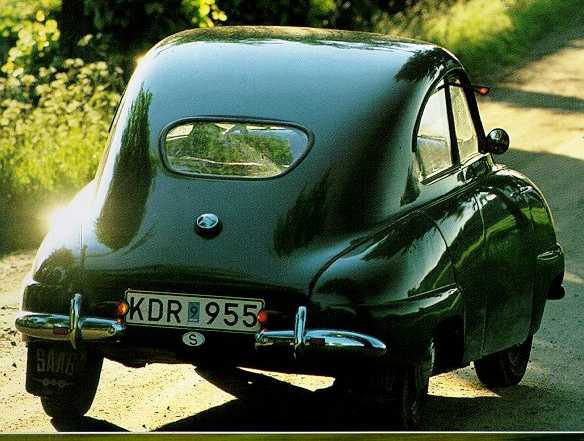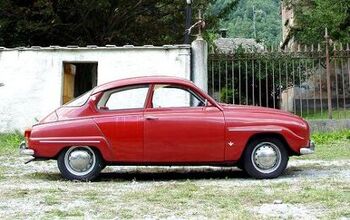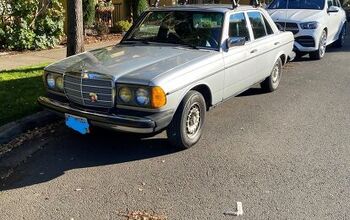Saab's Alive! That's The Good News

TTAC’s eulogy on Saab was premature. The Chinese willing, there will be new Saabs in the future. Surprisingly, Swedish defense contractor Saab AB licensed the Saab name to National Electric Vehicle Sweden (NEVS) to be used in future vehicles, a press release of NEVS says. NEVS also “finalized its acquisition of the main assets of Saab Automobile AB, Saab Automobile Powertrain AB and Saab Automobile Tools AB, effective August 31, 2012.”
The ultimatum given to NEVS last week apparently instilled fresh urgency into the parties, and an undisclosed amount changed hands on Friday. For the money, NEVS also received “IP rights for the Saab 9-3, IP rights for the Phoenix platform, tools, the manufacturing plant, and test and laboratory facilities.” There are others who think they also own that Phoenix platform. And the people of Trollhättan better don’t get their hopes up on EV exports to China.
Once in China, the new Saab logo probably will be a dragon with a crown and a long tongue, because the griffin logo was not included in the sale. That is owned by SCANIA, and folks there vehemently refused to sell the winged lion with the long tongue, due to the fact that the buyer is Chinese. When that happened, NEVS denied that is Chinese, telling just-auto that the deal is “not a Chinese investment” and claiming that the majority owner in NEVS is National Modern Energy Holdings, managed from Hong Kong and registered in the British Virgin Islands.
Two weeks later and with all signatures on the paper, NEVS rediscovered its Chinese identity. “NEVS is an international consortium formed by Swedish and Chinese stakeholders,” says the press release. “NEVS is wholly owned by National Modern Energy Holdings Ltd., whose founder and principal owner is Kai Johan Jiang.”
While “Chinese stakeholders” appear, the fabled Japanese venture capital fund exits stage left. We never bought into that story anyway.
With everything properly papered, NEVS could theoretically start building and selling Saabs today. However, NEVS is “solely dedicated to development and manufacturing of electric vehicles (EVs),” says the press release. The market for those EVs is China, which is “investing heavily in developing the EV market.” Says the NEVS statement:
“In approximately 18 months, we plan to introduce our first electric vehicle based on Saab 9-3 technologies and a new technology electric powertrain.”
NEVS Chairman Karl-Erling Trogen says that “the electric car of the future will be produced in Trollhättan.”
Here is something that does not compute at all. China is adamant that electric vehicles, if they want to receive generous government subsidies, must be produced in China, and must be made under a brand that is owned by a Chinese entity. This is why Nissan’s Leaf will be a Venucia and made in China, Volkswagen will have Tantos EVs with SAIC and Kaili EVs with FAW, Daimler builds a Denza EV with BYD, and so forth. Even stubborn Toyota caved in to Chinese demands and will create two “Chinese” EV brands with its Chinese joint venture partners. Why then spend the money on getting the Saab brand? Alright, it could be transferred to a Chinese venture – if the licensing language allows it.
But production in Trollhättan? That would be a big Bu Hao, as in forget about it. Carrying huge import duties and not qualifying for government subsidies, imported EVs are huge non-starters in China. If the Swedes expect that Trollhättan will turn into a bustling export hub for EVs destined to China, then they will be utterly disappointed.
There is a possibly additional fly in the Chinese duck soup. According to the press release, NEVS thinks it has bought “IP rights for the Phoenix platform.” Strangely, China’s Youngman also thinks it has “acquired a license in 2011” to the same Phoenix platform, and it will contribute that license to the Spyker Phoenix company, to be started with Victor Muller. Then again, if we understood last year’s press release right, that was a non-exclusive license, meaning that licenses can be sold as often as the copying machine allows.

Bertel Schmitt comes back to journalism after taking a 35 year break in advertising and marketing. He ran and owned advertising agencies in Duesseldorf, Germany, and New York City. Volkswagen A.G. was Bertel's most important corporate account. Schmitt's advertising and marketing career touched many corners of the industry with a special focus on automotive products and services. Since 2004, he lives in Japan and China with his wife <a href="http://www.tomokoandbertel.com"> Tomoko </a>. Bertel Schmitt is a founding board member of the <a href="http://www.offshoresuperseries.com"> Offshore Super Series </a>, an American offshore powerboat racing organization. He is co-owner of the racing team Typhoon.
More by Bertel Schmitt
Latest Car Reviews
Read moreLatest Product Reviews
Read moreRecent Comments
- Honda1 Unions were needed back in the early days, not needed know. There are plenty of rules and regulations and government agencies that keep companies in line. It's just a money grad and nothing more. Fain is a punk!
- 1995 SC If the necessary number of employees vote to unionize then yes, they should be unionized. That's how it works.
- Sobhuza Trooper That Dave Thomas fella sounds like the kind of twit who is oh-so-quick to tell us how easy and fun the bus is for any and all of your personal transportation needs. The time to get to and from the bus stop is never a concern. The time waiting for the bus is never a concern. The time waiting for a connection (if there is one) is never a concern. The weather is never a concern. Whatever you might be carrying or intend to purchase is never a concern. Nope, Boo Cars! Yeah Buses! Buses rule!Needless to say, these twits don't actual take the damn bus.
- MaintenanceCosts Nobody here seems to acknowledge that there are multiple use cases for cars.Some people spend all their time driving all over the country and need every mile and minute of time savings. ICE cars are better for them right now.Some people only drive locally and fly when they travel. For them, there's probably a range number that works, and they don't really need more. For the uses for which we use our EV, that would be around 150 miles. The other thing about a low range requirement is it can make 120V charging viable. If you don't drive more than an average of about 40 miles/day, you can probably get enough electrons through a wall outlet. We spent over two years charging our Bolt only through 120V, while our house was getting rebuilt, and never had an issue.Those are extremes. There are all sorts of use cases in between, which probably represent the majority of drivers. For some users, what's needed is more range. But I think for most users, what's needed is better charging. Retrofit apartment garages like Tim's with 240V outlets at every spot. Install more L3 chargers in supermarket parking lots and alongside gas stations. Make chargers that work like Tesla Superchargers as ubiquitous as gas stations, and EV charging will not be an issue for most users.
- MaintenanceCosts I don't have an opinion on whether any one plant unionizing is the right answer, but the employees sure need to have the right to organize. Unions or the credible threat of unionization are the only thing, history has proven, that can keep employers honest. Without it, we've seen over and over, the employers have complete power over the workers and feel free to exploit the workers however they see fit. (And don't tell me "oh, the workers can just leave" - in an oligopolistic industry, working conditions quickly converge, and there's not another employer right around the corner.)


































Comments
Join the conversation
How SAAB will be in Chinese? Or will it still be called SAAB in any language?
About the logo: Since the griffin head is basically just the coat of arms of Malmö -- captal of the province of Scania(*), geddit? -- it's free to use; it's not actually owned by SAAB/Scania/VW/whoever, but if by anyone, then by the city. And a representative of the city has been quoted in the Swedish press as saying they won't mind NEVS using it. (Sorry, can't remember the source right now. Probably Dagens Nyheter, dn.se, or Svenska Dagbladet, svd.se.) (*) Zu Deutsch: Schonen